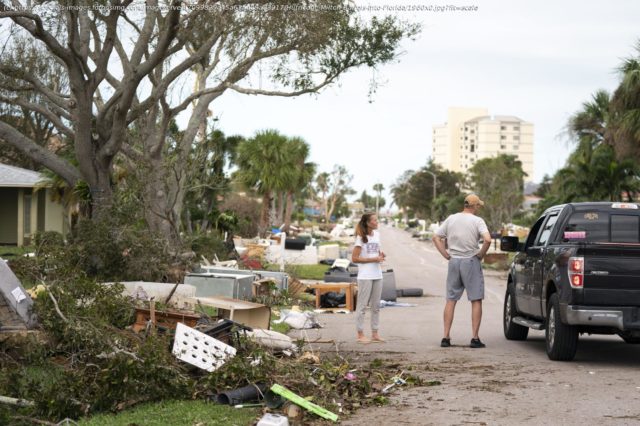Our latest edition of Tax Breaks. Plus: Plus: Social Security benefits checks will be a little bigger in 2025, tariffs, ERC lawsuits, tax filing deadlines, and more.
This is a published version of our weekly Forbes Tax Breaks newsletter. You can sign-up to get Tax Breaks in your inbox here.
The headlines were dominated this week by storm coverage. Even as clean-up from Hurricane Helene was going on, Category 5 Hurricane Milton was marching towards Florida. Fortunately, the storm largely spared Tampa and diminished as it made its way across the state. Still, storm surges threaten the coast and forecasts continue to call for heavy rainfall.
We’ve all seen the resilience of those impacted by the recent storms—hashtags like #mountainstrong and #Tampastrong speak to how residents are dedicated to rebuilding. If you want to help but aren’t sure where to start, here are some tax-exempt charities that have indicated they are accepting Milton-specific donations.
Help is also available for taxpayers. Last week, the IRS announced tax relief (☆) for individuals and businesses affected by Hurricane Helene, including the entire states of Alabama, Georgia, North Carolina, and South Carolina and parts of Florida, Tennessee, and Virginia. This week, the IRS extended the relief to victims of Hurricane Milton. In both instances, most taxpayers have until May 1, 2025, to file and pay their federal taxes.
Victims of these recent natural disasters have also been granted (☆) an FBAR filing extension for the 2023 calendar year. Your rule of thumb: FinCEN deadlines for FBAR filings will be the same as the IRS deadlines.
(So far, extensions have not been granted by FinCEN for purposes of the Corporate Transparency Act—or CTA.)
That said, following the storms, I’ve seen a lot of bad advice. And I mean A LOT. I cannot stress this enough: Do not take financial or legal advice related to disaster relief from a meme or social media. A misstep in filing a claim or seeking other relief can slow down benefits and could land you in trouble (if it’s purposeful). Consult with someone who knows what they’re doing. If you cannot afford to retain someone to help you, free legal help is available in almost every state. Here’s a list of some legal aid organizations that are offering assistance:
In FL: Florida Disaster Legal Helpline
In GA: Georgia Legal Aid
In NC: Legal Aid of North Carolina
In SC: South Carolina Legal Services
(Attorneys can also sign up to help. It may be the case that you don’t have to be licensed in that state to help. In my home state of NC, the NC Supreme Court issued an administrative order–called a Katrina order–that permits attorneys licensed in other states, like me, to temporarily register to provide pro bono legal services to those impacted by the storm.)
When it comes to taxes, the IRS has a special hotline specifically dedicated to taxpayers with disaster-related tax questions—disaster victims can call the agency’s disaster hotline at 866-562-5227.
Recovery will not be quick—it will take some time. At Forbes, our thoughts are with those affected by the storms.
Not all of us will be so industrious this weekend, though those taxpayers and tax pros trying to finish up tax returns on extension may feel like they’ve run a marathon. Hopefully, it won’t be too taxing. (I know, groan.) And of course, Jewish readers may be thinking deeper non-tax thoughts as they observe Yom Kippur on Saturday.
Enjoy your weekend,
Kelly Phillips Erb (Senior Writer, Tax)Taxes From A To Z: T Is For Tariff
In simple terms, a tariff is a tax imposed by a country on imports or exports of goods or services from another country. Tariffs are typically used for one, or sometimes both, of the following reasons:
To make money
To protect domestic industry from competition
In the U.S., the first tariff levied by our government (outside of those nasty British tariffs) was adopted in 1789. The not-so-cleverly named Tariff Act of 1789 had, as its primary goals, precisely the reasons stated earlier: money and protectionism.
That same year, the Treasury was charged with administering tariff laws. However, that role eventually would fall to the U.S. Customs Bureau, which was dissolved in 2003 in favor of the newly created Bureau of Customs and Border Protection.
A tariff is generally classified as a specific or ad valorem duty.
A specific duty is a fixed amount of money that does not vary with the price of the goods. An example of a specific duty would be a tax of $10 per pound of sugar. In 1789, those specific duties were imposed on 36 goods, including beer, wine, spirits, molasses, salt, sugar, tobacco, tea, and coffee. If that sounds like mostly good stuff, you’re right. It was considered a luxury tax aimed at the wealthy.
An ad valorem duty—Latin for « according to value »—is calculated as a percentage of the value of the goods. An example would be a tax of 20% on the value of cotton. In 1789, the ad valorem duties of 5%-15% were imposed on most imports not otherwise excluded from tax and included china, stone, and glassware.
Proponents argue that a tariff, since it typically increases the prices of imported products, should give domestically produced products a price advantage.
Opponents, however, argue that tariffs serve as trade barriers, reducing supply and raising prices. Goods and services from multinational corporations may cross several borders, subjecting them to multiple tariffs and exemptions, making the formula complicated and goods more expensive.






